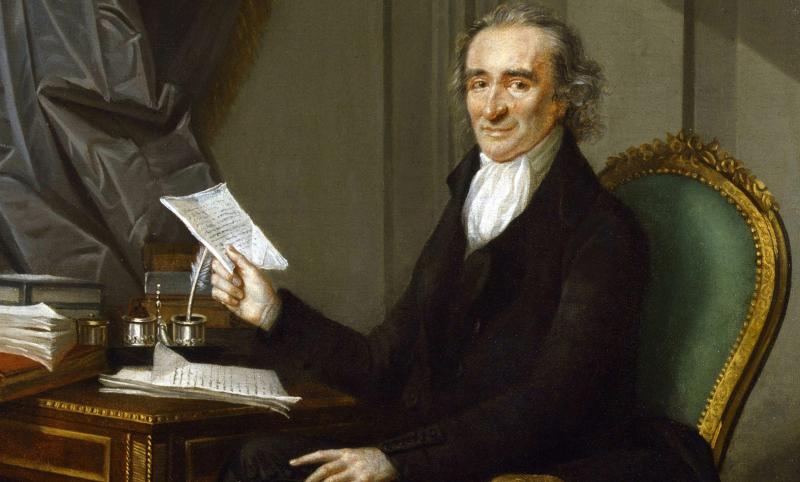

By 1776, England had imposed acts to tighten control of the American Colonies, and armed conflict had occurred in Massachusetts. The First and Second Continental Congress had met and attempted to resolve issues of tension between the colonies and Britain. The colonial army had loosely formed, under the leadership of George Washington.
Still, many colonists believed that King George was simply being misled by evil advisers. Many Americans hoped that war and a break with England could be avoided. The difficult job of the patriots in the colonies was to mobilize public opinion and move it in the opposite direction.
Those wishing for a break with England and total independence had no better propagandist than Thomas Paine. By reviewing Paine’s life and publications—especially "Common Sense"--during the early portion of the Revolution, students will gain an appreciation for the essential role Paine played in explaining the patriot position and moving public opinion in favor of independence.
Version 1: Students read all of "Common Sense" Version 2: Students read excerpts from "Common Sense."Three total days. Students will spend one period in the classroom discussing Thomas Paine, His Life and Times; one period in the computer lab and one day of in class discussion examining student answers.
1. In class discuss elements of Paine’s life that make him ideally suited for the job of propagandist as described in the following sources:
The History Guide, Lectures on Modern European Intellectual History, Thomas Paine, 1737-1809American History from Revolution to Reconstruction and Beyond, A Biography of Thomas Paine (1737-1809)